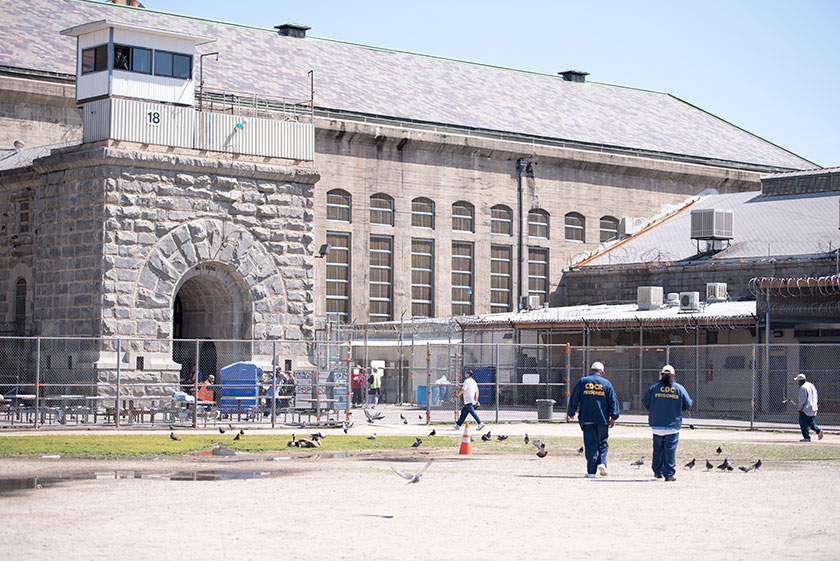
Paul Green spent 10 years preparing prisoners to find jobs. But they were more than "prisoners" to Paul—they were his neighbors.
Paul was incarcerated, and for 10 years he was part of a group in the career center at the Federal Correctional Institute in Seagoville, Texas that pioneered skills training for people preparing to transition out of prison.
"That was perhaps the most rewarding program," Paul says. It was especially encouraging to see these prisoners find work after their release. The program focused on resume building and interview skills, and even had job fairs.
"We put together a portfolio for each [prisoner] that had all of their release documents, whatever accomplishments they achieved while incarcerated, and their educational transcripts so that they would be completely prepared," Paul shares.
Educational and vocational programs in prison have proven to be an effective part of the prisoners' reentry process. The RAND Corporation states that educational programs reduce a participant's chance of returning to prison by 43 percent.
Even so, many federal prisons do not have sufficient programming to meet the needs of incarcerated men and women
PRISON REFORM FOR A BETTER AMERICA
Prison Fellowship® believes each person impacted by crime and incarceration has intrinsic value and the capacity for change. We believe a restorative approach is the key to building a better criminal justice system, and we support legislation that upholds our values—legislation like the FIRST STEP Act (formerly known as the Prison Reform and Redemption Act).
This bipartisan legislation will direct the Department of Justice to implement the Post-Sentencing Needs and Risk Assessment system, which will assess prisoners' risk of re-arrest. It will also expand recidivism-reducing programming within federal facilities and offer more opportunities to earn time credits for good behavior and program participation.
The expansion of prison programming and stronger partnerships with nonprofit organizations will help promote a more constructive prison culture, which is at the heart of Prison Fellowship's mission. Federal prisons should provide opportunities for men and women behind bars to make amends and earn back the public's trust.
JOIN US AT THIS HISTORIC MOMENT
Donate your signature and tell your elected official that you support programs that change lives.
MORE HELP IS NEEDED
Paul witnessed firsthand the difficulties that occur in rehabilitation when prisons lack restorative programming. In the various facilities where he was imprisoned during his 19-year sentence, there were few options and very little incentive to participate.
The classes that were offered "were so crowded most people couldn't get in," he remembers. In Paul's opinion, these limited options for rehabilitation spelled trouble for prisoners, especially the younger ones.
"[You] watch people coming into the system with fear and apprehension about what it is they are getting into," Paul says. "If you don't grab the individual in the first few weeks or months that they are there, you're going to lose them. … These young kids—especially the young kids—are not going to get involved with any type of programming unless they have it within themselves to do it, and that's what scares me most."
It is necessary to have a nationwide federal program that would assess individuals and help them engage in appropriate programs if we truly want to see people rehabilitated and reformed, Paul explains.
Like Paul, many people in the federal prison system are ready to turn their lives around and simply want to regain the trust of the communities they will one day return to. But they need the tools to succeed.
SUPPORT THE FIRST STEP ACT
By passing the FIRST STEP Act, the United States government is sending a message to America's incarcerated, their families, and our nation that people who have paid their debt to society deserve an opportunity for a second chance. This act will create a constructive prison atmosphere where prisoners can grow and reform—an atmosphere in which making amends and earning back the public's trust are expected during punishment.
Right now, we have a historic opportunity to advance this bipartisan legislation that will give federal prisoners access to life-changing programs and prepare them for successful reentry into our communities. With help and opportunities, people behind bars can go on to make important contributions.
Will you join us at this historic moment?
At this very moment, you can improve outcomes for more than 180,000 men and women in federal prison, as well as their families, communities, and our nation.
Share your name and address here, and we'll send your congressional representative a message declaring your support for prison reform that expands access to transformative programming and lays the groundwork for changed lives and safer communities.